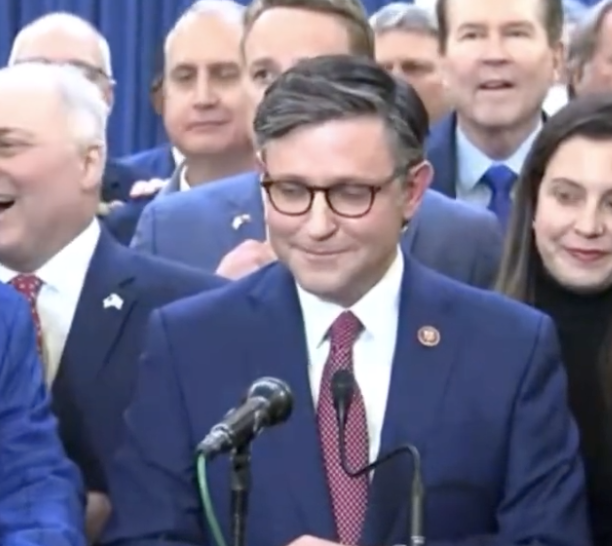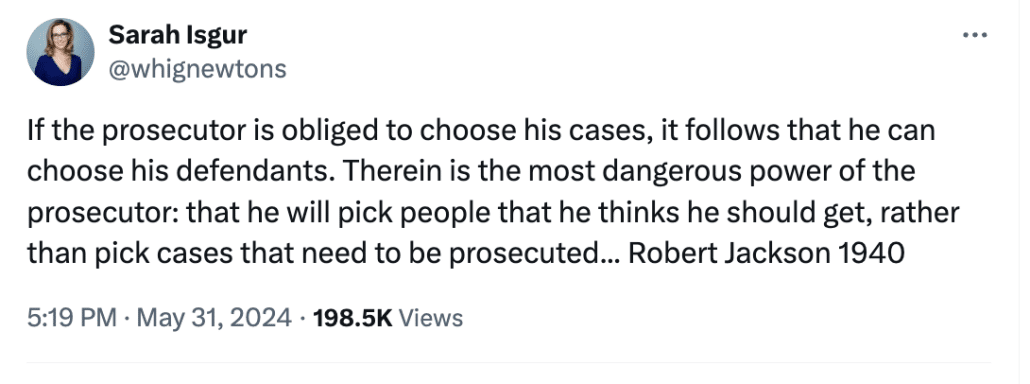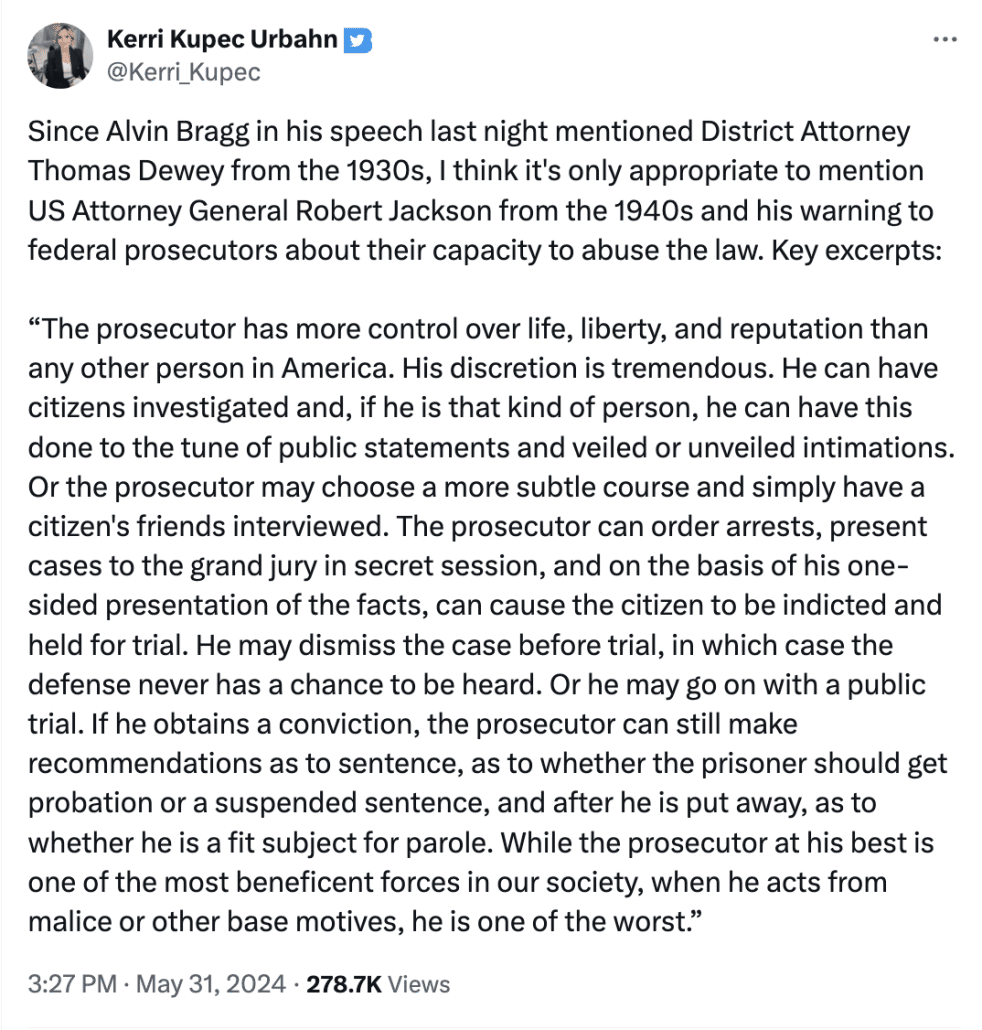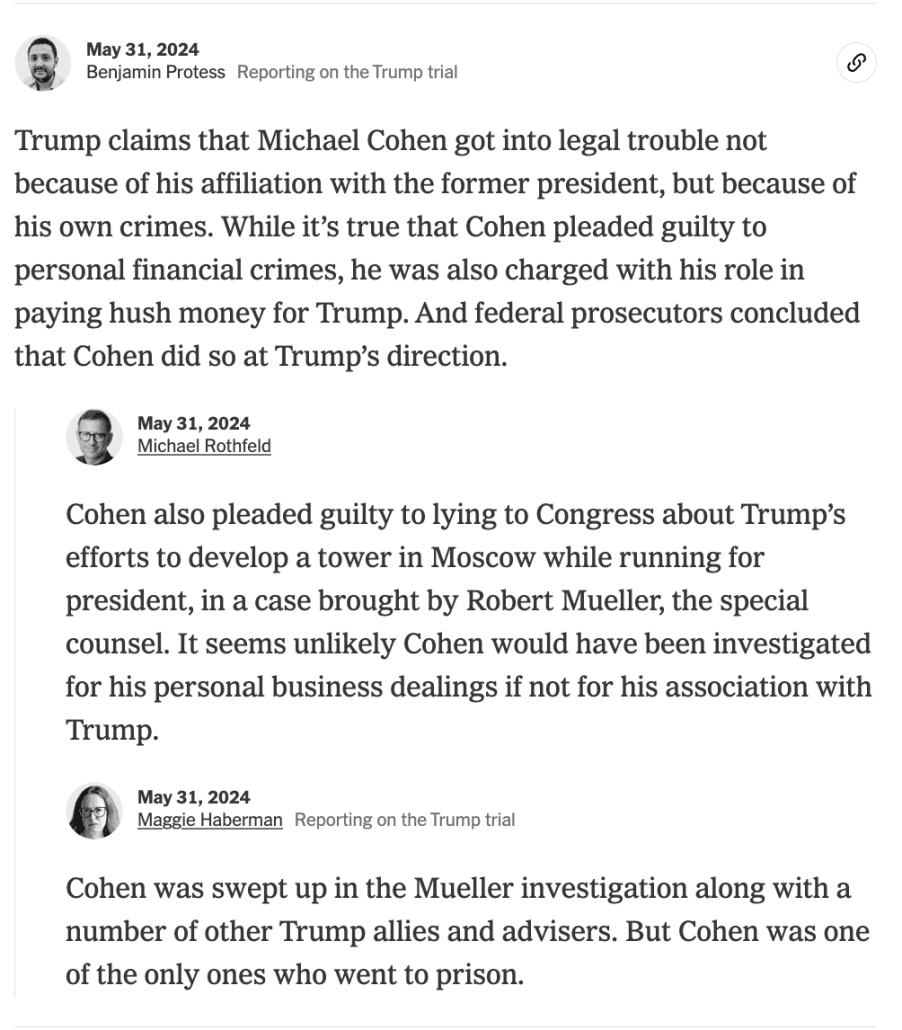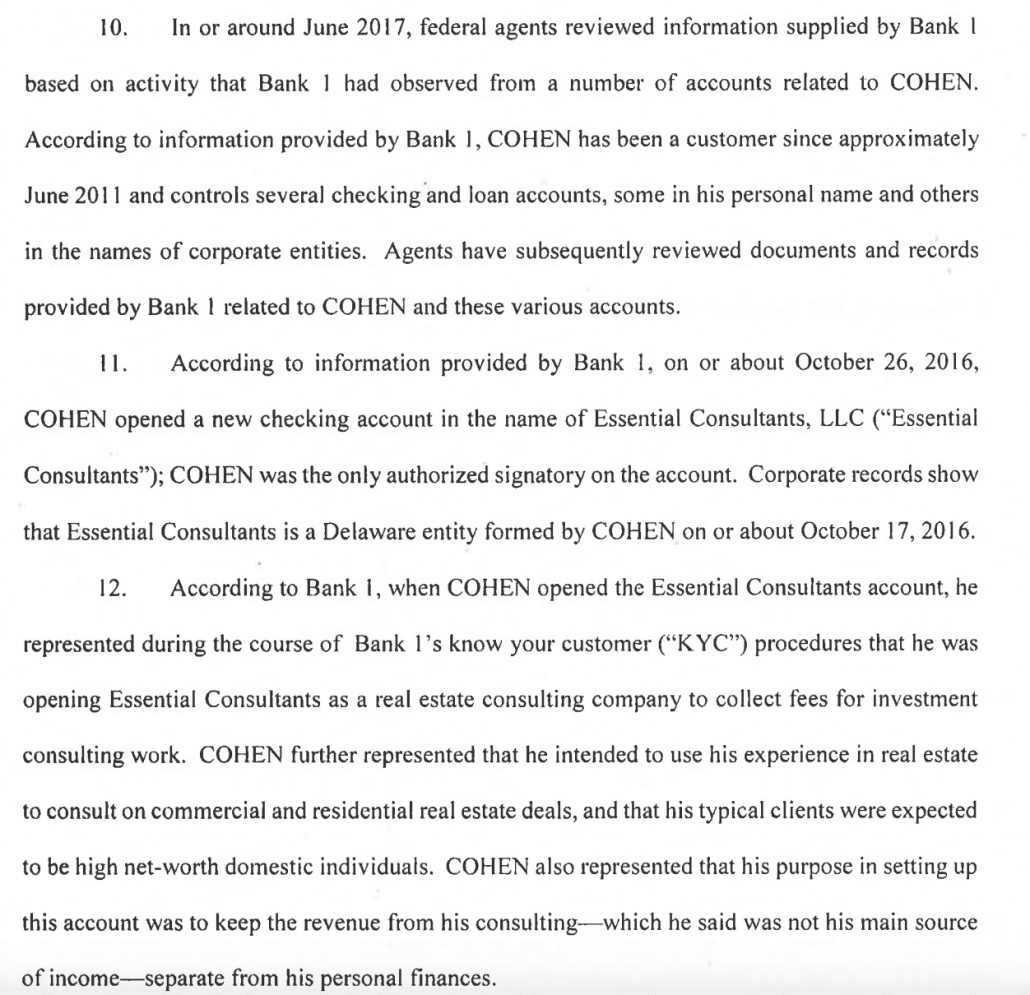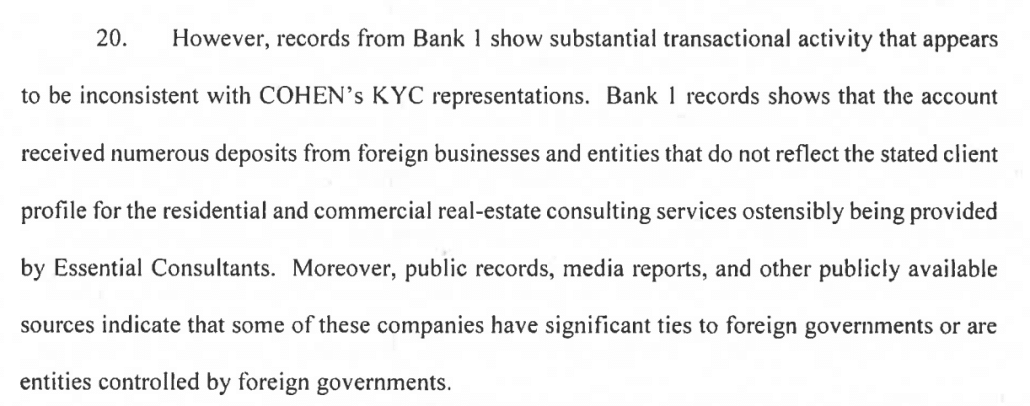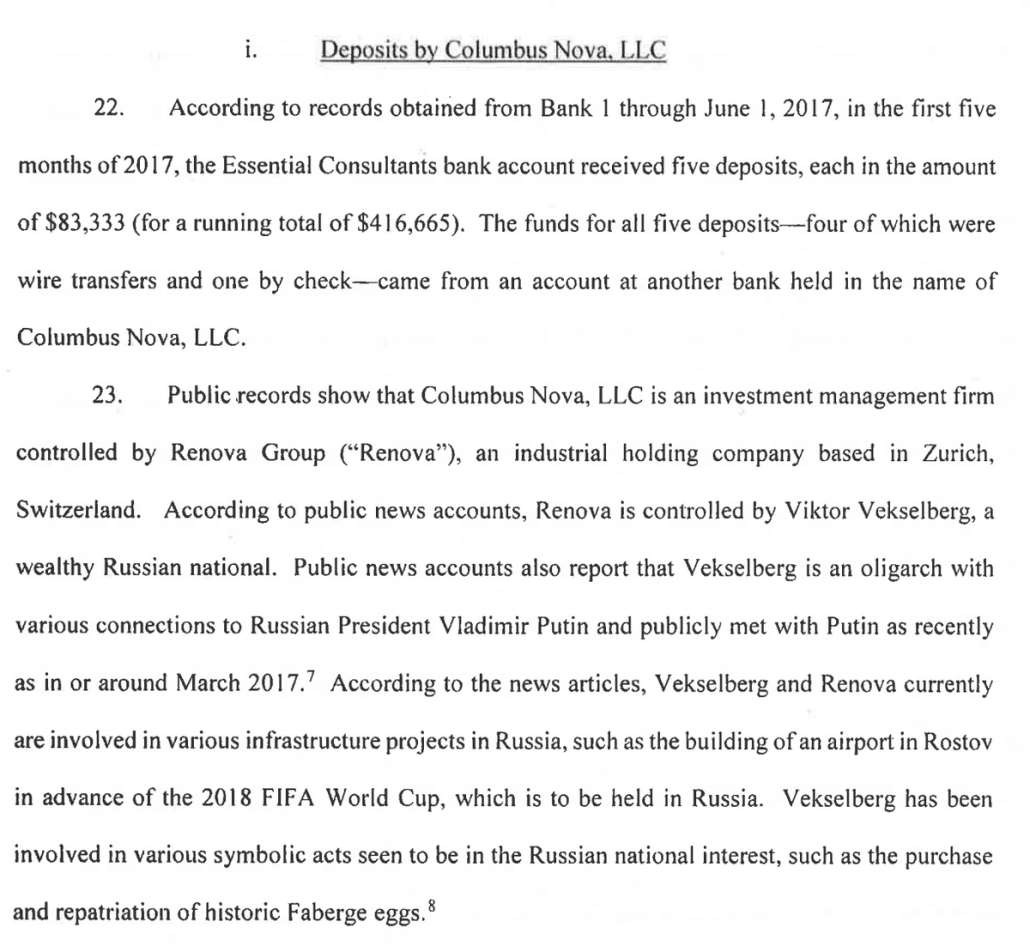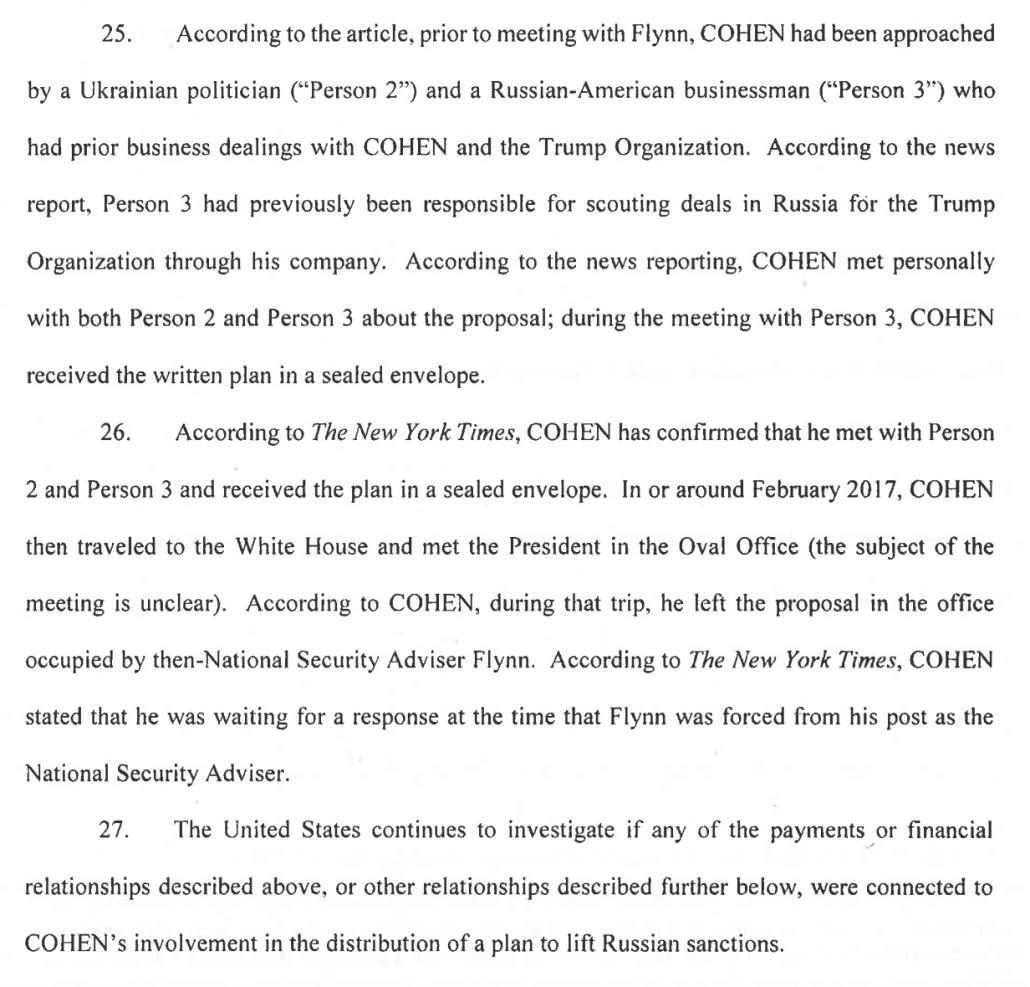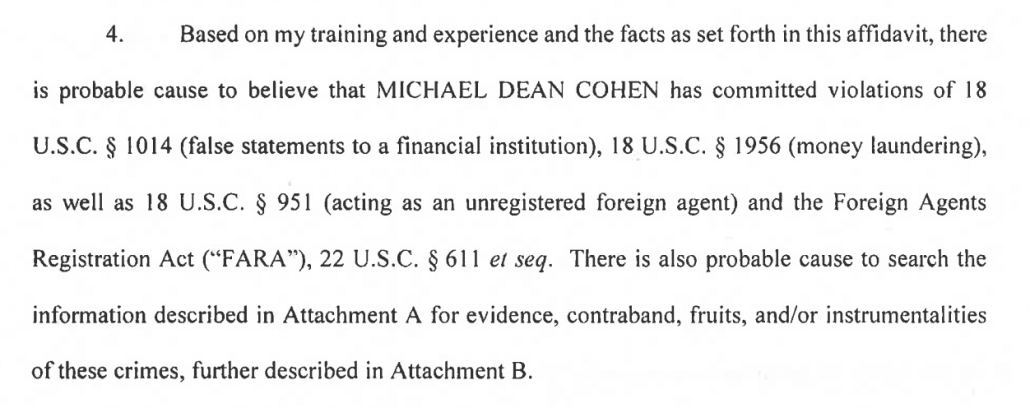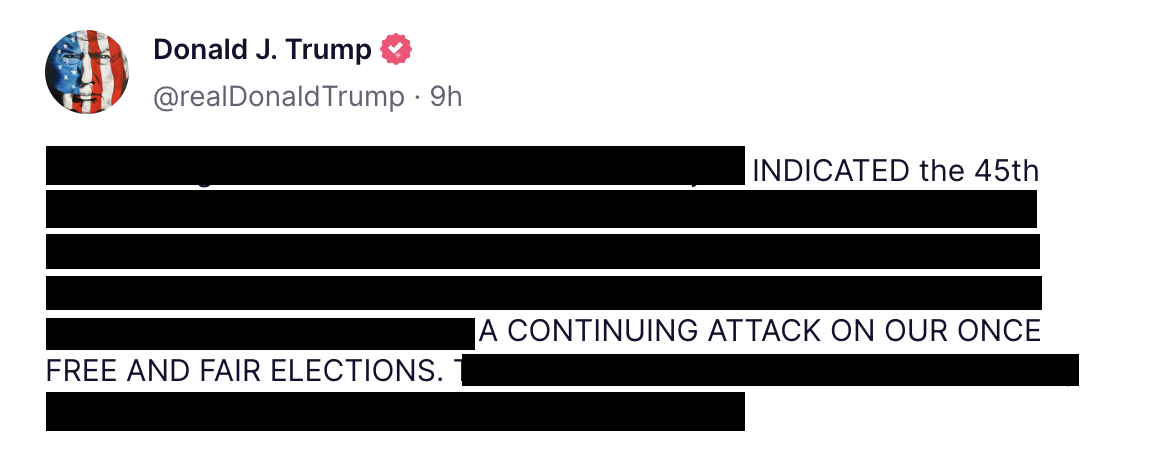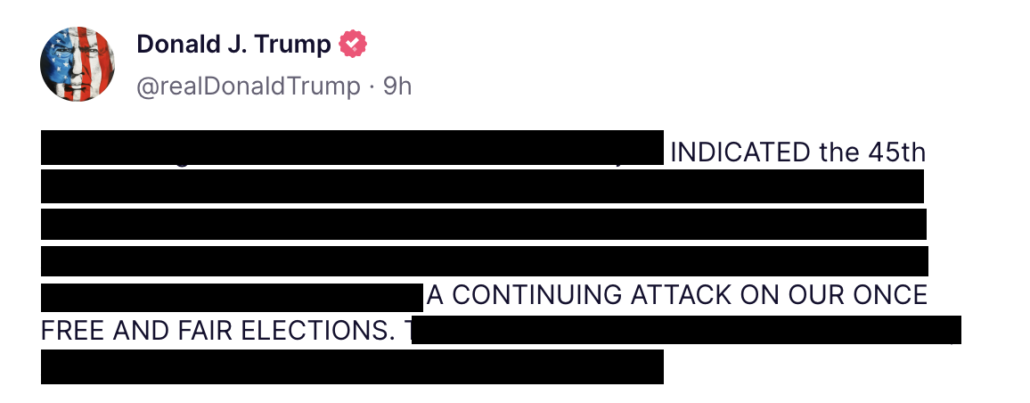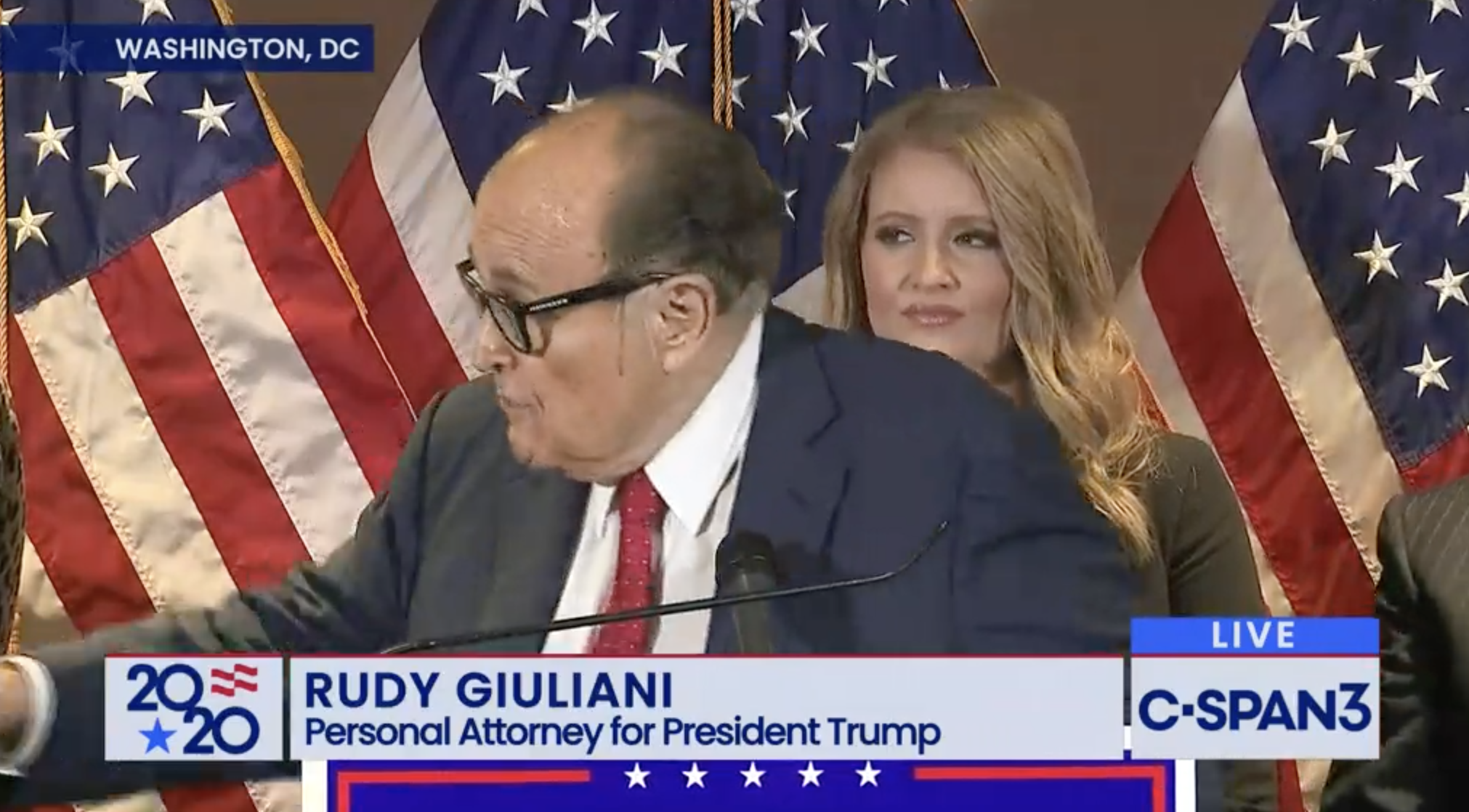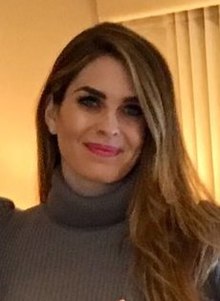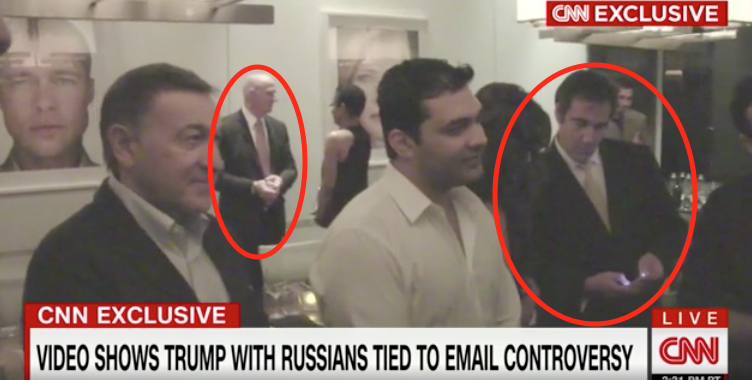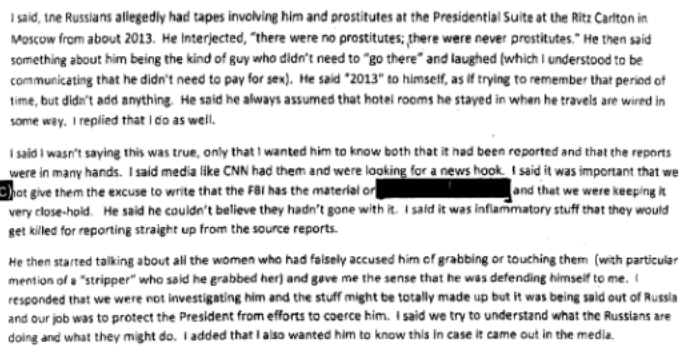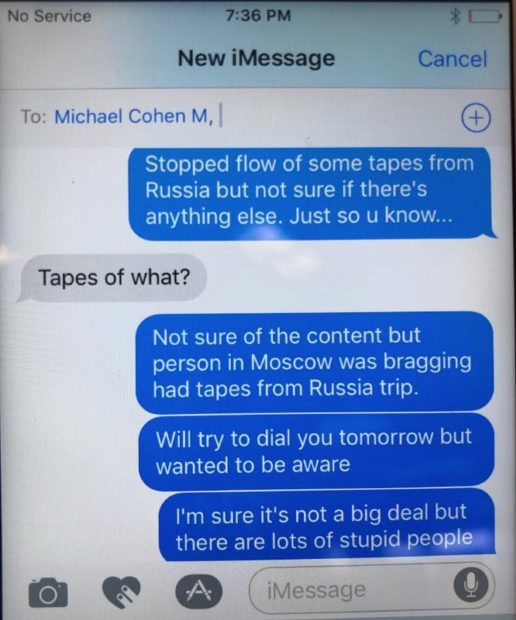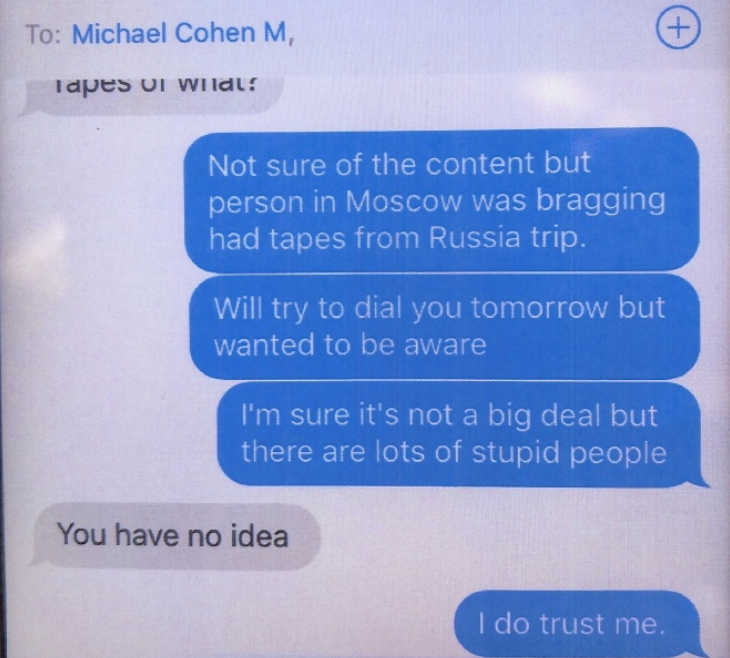I’m certain, when people assert that if DOJ were investigating Donald Trump, there would be some visible sign, they’re wrong.
I say that because I’m among the people who have followed the proceedings surrounding the Special Master review of Rudy Giuliani’s phones most closely. And I can’t even tell you what the status of that review is, much less whether DOJ obtained warrants for phone-based content for investigations beyond the foreign influence-peddling investigation for which the phones were first seized.
I’m not saying that has happened. I’m saying that if it had happened, none of us would know.
We know Rudy was Trump’s key facilitator in several other crimes Trump committed besides the foreign influence peddling described on the warrants: both obstruction of the Mueller investigation and Trump’s attempt to overthrow the election. There is already public evidence that Rudy would be a subject in any investigation into both those crimes. After all, he (and his current lawyer) dangled a pardon in an attempt to buy Michael Cohen’s silence in April 2018, and in the days after the insurrection, Rudy appears to have been in contact, using his phone, with a Proud Boy associate, James Sullivan, who coordinated with some of the perpetrators.
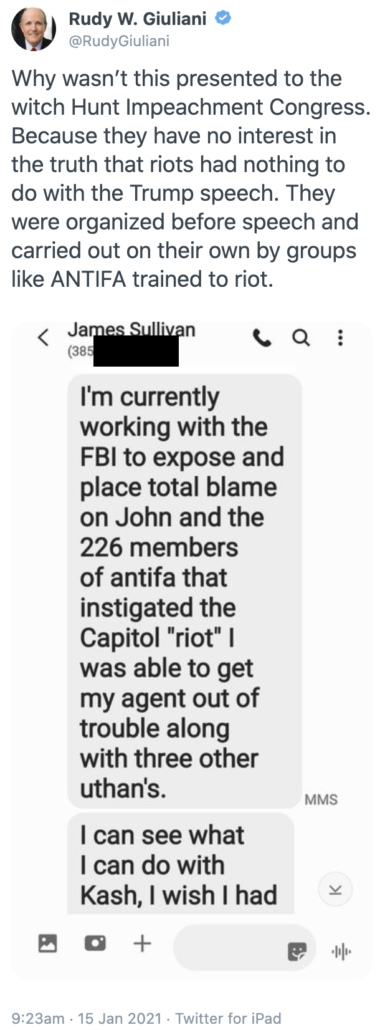
If Rudy were a subject in these investigations, prosecutors could obtain the content of his phones with no public notice. The people keeping that secret would be the same people who kept the warrants targeting his cloud accounts in 2019 secret for 18 months, and the same people who kept warrants targeting Cohen secret for three months, including one of the very same prosecutors, Nicolas Roos.
Before I explain what we know about Rudy’s phones, let me explain what we learned from Michael Cohen’s investigation, Rudy’s predecessor as Trump’s fixer whose phones got seized by SDNY (Cohen’s criminal docket is here and the Special Master docket is here).
The very first warrant targeting Michael Cohen — a warrant for his Google email that Mueller’s team obtained on July 18, 2017 — described how he set up Essential Consultants not for real estate purposes, as he had claimed to his bank, but instead to pay off Stormy Daniels. But the campaign finance crime that Cohen eventually pled guilty to was not among the crimes listed on that original warrant. Instead, the warrant focused on his lies to his bank, which would be included in his eventual charges, and foreign agent charges, which were not. It wasn’t until April 7, 2018 that the hush payment was included in a warrant for the campaign finance crime to which Cohen eventually pled guilty. Importantly, that warrant, obtained by SDNY, asked to access content obtained with most (but not all) of the warrants targeting Cohen up to that date (the exception was a warrant for Cohen’s Trump Organization email). Those warrants included:
- The original July 18, 2017 warrant that obtained Cohen’s email from January 1, 2016 through July 17, 2017
- An August 7, 2017 Mueller warrant that obtained the content of Cohen’s iCloud account
- A November 13, 2017 Mueller warrant that obtained an expanded period of Cohen’s Gmail, from January 1, 2015 through November 13, 2017
- A November 13, 2017 Mueller warrant that obtained the contents of an email account on 1&1 Internet that Cohen set up for Essential Consulting from the date he set it up in March 2017 through November 13, 2017
- Warrants SDNY obtained on February 28, 2018 for the Gmail and 1&1 account content from November 14, 2017 through that date
What that April 7 warrant asked to do, then, was to access three devices on which Cohen’s previously-seized content was stored, but to do so in search of evidence of campaign finance crimes not covered by the earlier warrants. (SDNY had expanded the crimes included on the warrants once already in February 2018.) It was only two days later, when SDNY executed searches on Cohen’s residences and phones, that anyone would discover that the government had shown probable cause to obtain warrants targeting Trump’s personal lawyer for crimes including conspiracy, lying to a bank, and campaign finance violations. It was over a year later before the foreign agent warrant searches were publicly disclosed.
This process offers several lessons for this discussion about Rudy’s phones and therefore for discussions about whether DOJ is investigating Trump. First, the government can — and did in the case of two of Donald Trump’s personal lawyers — obtain probable cause warrants without news of the warrants leaking. It’s only when the government conducts an overt search that an investigation would become public. In the interim, and even after the overt search, the government can simply conduct a filter team review of the seized material and store it at FBI. If prosecutors find probable cause to access the already collected content for different crimes, they can do that. They just need to get another warrant. In Michael Cohen’s case, they did that twice.
These three posts — one, two, three — explain how what we’ve learned of the searches on Rudy thus far; this is the docket for the Special Master review of Rudy’s phones).
They show that the government is currently in possession of the contents of Rudy’s email and his iCloud account from roughly May 1, 2018 (three months before the August 1, 2018 start date of the warrants targeting his phone) through November 4, 2019. The FBI did a filter team review of this content that was almost completed in April when they seized Rudy’s phones. So not only has FBI been reviewing that content for evidence of illegal foreign influence peddling with Ukraine since April, if SDNY or some other unit of DOJ could show probable cause that those emails or that iCloud content probably included evidence of other crimes, they could have obtained and executed a search warrant for that, too. We wouldn’t know if they had.
That information would slightly post-date the period in April 2018 when Rudy Giuliani’s (and Steve Bannon’s) own current lawyer, Robert Costello, was writing Michael Cohen implying that Trump would pardon him to buy his silence; because those conversations were with a then-third party, Costello, and preceded the time Rudy was formally representing Trump, they likely would not have been filtered. The discussions that Rudy Giuliani had with Paul Manafort’s attorney in fall 2018 that led Manafort to renege on his cooperation agreement would be covered in that time period, though probably would have been filtered as privileged. Discussions Rudy had with Manafort about Ukraine when he was in prison likely would not be privileged.
If Lev Parnas’ redaction fail is to be believed (and thus far his claims have been utterly consistent with what prosecutors and Judge Paul Oetken have said), on April 13, 2021, DOJ also obtained historic and prospective cell site data for Rudy, as well as Victoria Toensing. While this was probably done to pinpoint the location of the phones targeted in the overt search conducted on April 28, in Rudy’s case that cell site data might have useful information about where Rudy was during or in the aftermath of the January 6 attack. (This is likely to be a fairly circumscribed time period tied to specific events shown in the still-sealed affidavit, but when Mueller obtained historic cell location data on Roger Stone in 2018, it covered a five month period.) This warrant, covering whatever period, would also provide information about with whom Rudy was in contact, though the government would have had some of that without even requiring a warrant.
It’s Rudy’s phones where things begin to get interesting. The FBI seized 16 devices from Rudy. Once he got to review the material extracted from his phones, Rudy claimed that the content dates back to 1995, though the government relayed that Special Master Barbara Jones reported that the bulk of the data dates to 2010 and later. Both Rudy and Toensing pointed to the vast scope of initial data obtained and asked Jones to limit her review to the materials dated within the scope of the warrant, which for Rudy is August 1, 2018 through December 31, 2019. The government responded that this would put Jones in the role of conducting not a privilege review, but also a responsiveness review, something which is a clear government role.
The Letters conflate the scope of the Special Master’s review for privileged material with the scope of the Government’s eventual review for material responsive to the Warrants. The Letters present extensive argument concerning only the latter, yet seek relief concerning the former. That is, the Letters contend that the Government’s search for responsive materials must conform to certain limits, then leap from that conclusion to request limits on the Special Master’s initial screening for privileged items. (See Giuliani Let. 4-24 (arguing Government can review only materials dated August 1, 2018 to December 31, 2019); id. at 1, 25 (requesting order that Special Master review only materials from the same period)). The Letters thus ask the Special Master to conduct a responsiveness review: To identify and withhold from Government investigators documents that are in no way privileged, based on a determination that they fall outside the scope of the Warrants. Neither the Warrants, nor this Court’s order appointing the Special Master, contemplate that an arm of the Court, rather than Government investigators, would conduct such a review. (See, e.g., Dkt. 25 (order appointing Special Master)). The Letters’ attempt to limit the materials to which investigators will have access thus appears to be an attempt to relitigate Giuliani’s and Toensing’s meritless efforts to limit the search contemplated by the Warrants ex ante, which this Court already rejected. (See Dkt. 20 at 3-6 (Court rejecting motions for pre-charge (indeed, pre-search) suppression and return of property)).
The government noted that under the terms of the (known) warrants, they are entitled to anything created, accessed, or deleted in that time frame (the government knows from the Parnas investigation that he deleted information from his iCloud in 2019 and Parnas predicted that Rudy and Toensing did as well). And so the government generously offered to have Special Master Jones limit her privilege review to files created on or after January 1, 2018, arguing that such a limitation is akin to the initial scoping that FBI would do.
SDNY further argued that there is no basis, at this time, to delete any of the older material, because the government might later discover that the material is actually responsive to the investigation.
This Court should not, however, grant the Letters’ requests to destroy or return any data at this time. The Court has already rejected motions for exactly that relief. (See Dkt. 20 at 3-6). Moreover, the Government is entitled to retain a complete copy of the seized data, so that it can authenticate any portion of the data ultimately offered in evidence. See Ganias, 824 F.3d at 215. Data that clearly predates January 1, 2018 should thus simply be put aside, and not reviewed by the Special Master or the Government. It may be that the Government’s eventual review of the materials post-dating January 1, 2018 reveals reason to believe that some of the segregated material is in fact responsive. If that is so, then the Government would have reason to search it—just as an FBI agent might return to that 2013 filing cabinet if his search of other files revealed that documents in the searched office were often filed under the wrong dates. At that point, the Government could then request the privilege review which it is now willing to forego for efficiency’s sake.
Without asking for this explicitly, DOJ’s argument had the effect of asking that Jones conduct a privilege review of content that includes the foreign influence peddling for which SDNY showed probable cause occurred between August 1, 2018 and December 31, 2019, but also content that would cover the entirety of the time that Rudy Giuliani was helping Trump obstruct the Mueller investigation and the entirety of the time that Rudy played the leading role in helping Trump attempt to overthrow an election.
As I have shown, the government sought (and is paying for) a Special Master review in this case because they have reason to believe, presumably based on their earlier search and the investigation into Parnas, there are crime fraud-excepted communications in this content. This very same Special Master, Barbara Jones, provided SDNY with a way to access to Michael Cohen’s communications discussing a campaign finance crime with Trump, and SDNY seems to believe they will obtain communications of Rudy discussing crimes with Trump, as well.
Let me interject and note that Judge Paul Oetken knew of the earlier search on Rudy’s cloud content — indeed, he authorized the gag keeping it secret. And in the 18 months between that search and the time Rudy got notice of it, Oetken likewise issued orders that helped the government cordon off parts of the investigation, such as the initial foreign influence peddling charge against Parnas and Igor Fruman tied to their efforts to fire Marie Yovanovitch, until such time as SDNY was able to access the information in question. That is, Oetken has been persuaded to allow SDNY to protect their investigation into Rudy, even during a period when Billy Barr was actively trying to thwart it, and part of that involved keeping warrants secret not just from the public, but from Rudy, as well.
If SDNY or some other component of DOJ obtained additional warrants for this same content, Oetken would undoubtedly know of it and probably would have had to approve it.
Whether or not there are other warrants and whether or not Oetken knows of them, though, he ruled to give the government access to the content that spans Rudy’s involvement in Trump’s obstruction, his own foreign influence peddling, as well as Rudy’s lead role in attempting to overthrow the election. In mid-September, Oetken ordered Jones to limit her review to materials post-dating January 1, 2018, which is tantamount to ordering her to include in her review everything covering all the potential Trump-related exposure that might be under investigation. And he explicitly denied, for a second time, Rudy and Toensing’s request to delete or return everything else.
That means that at the end of Special Master Jones’ review, the government will have all the unprivileged or crime fraud-excepted contents from Rudy’s 16 devices covering the period when he helped Trump obstruct justice, when he solicited campaign help from foreigners, and when he attempted to overthrow the election (as well as any pardon-related discussions from the post-election period). That doesn’t mean they’ve gotten warrants targeting that content. We would not know whether they had, one way or another. But the content would be available, having already undergone a privilege review, if they did get those warrants.
What we do know is this: Of 2,226 items found on seven of Rudy’s 16 seized devices reviewed by Jones thus far, he claimed privilege over just three items. But even with respect to his privilege claim over those three items, Jones has reserved judgment, meaning she may doubt his claim they can be withheld (perhaps because they are crime fraud-excepted).
The Government has provided Seized Materials from 16 electronic devices seized from Mr. Giuliani. On September 28, 2021, I directed that Mr. Giuliani complete his review of the data contained on seven of these devices by October 6, 2021, which was later extended to October 12, 2021. These seven devices contain 2,226 items in total dated on or after January 1, 2018. Mr. Giuliani designated 3 items as privileged, and I am reserving decision on those 3 items. The remaining 2,223 items have been released to the Government.
Additional documents for review have been assigned to counsel for Mr. Giuliani, with the next set of designations due to me on November 5, 2021.
So as of a month ago, the government had started getting materials — covering the period from January 1, 2018 through April 21, 2021 — from Rudy’s phones.
Jones and her staff were able to conduct privilege review on that content over two weeks time, and they were supposed to have had a second tranche of materials to review a month ago, meaning they likely have reviewed an even larger quantity of material since.
But that’s it! That’s all we know. Jones has reported less frequently than she did during her Cohen review, though assuming she will issue monthly reports now that she is reviewing in earnest, one should be due shortly.
We don’t know how much of the content on Rudy’s phones is evidence of a crime and how much is evidence of drunken blathering to reporters. We don’t know if any entity of DOJ has obtained warrants for those other Trump crimes in which Rudy was centrally involved. We don’t know why Jones has reserved judgement on the few privilege claims that Rudy has made thus far, six months into a Special Master review.
We know just two things. First, if there is evidence of crimes on Rudy’s 16 devices, DOJ will have a way of getting to it. And we would not have anyway of knowing that they had.
Update: In related news, a pre-taped interview I did for NPR was on Weekend Edition this morning.

